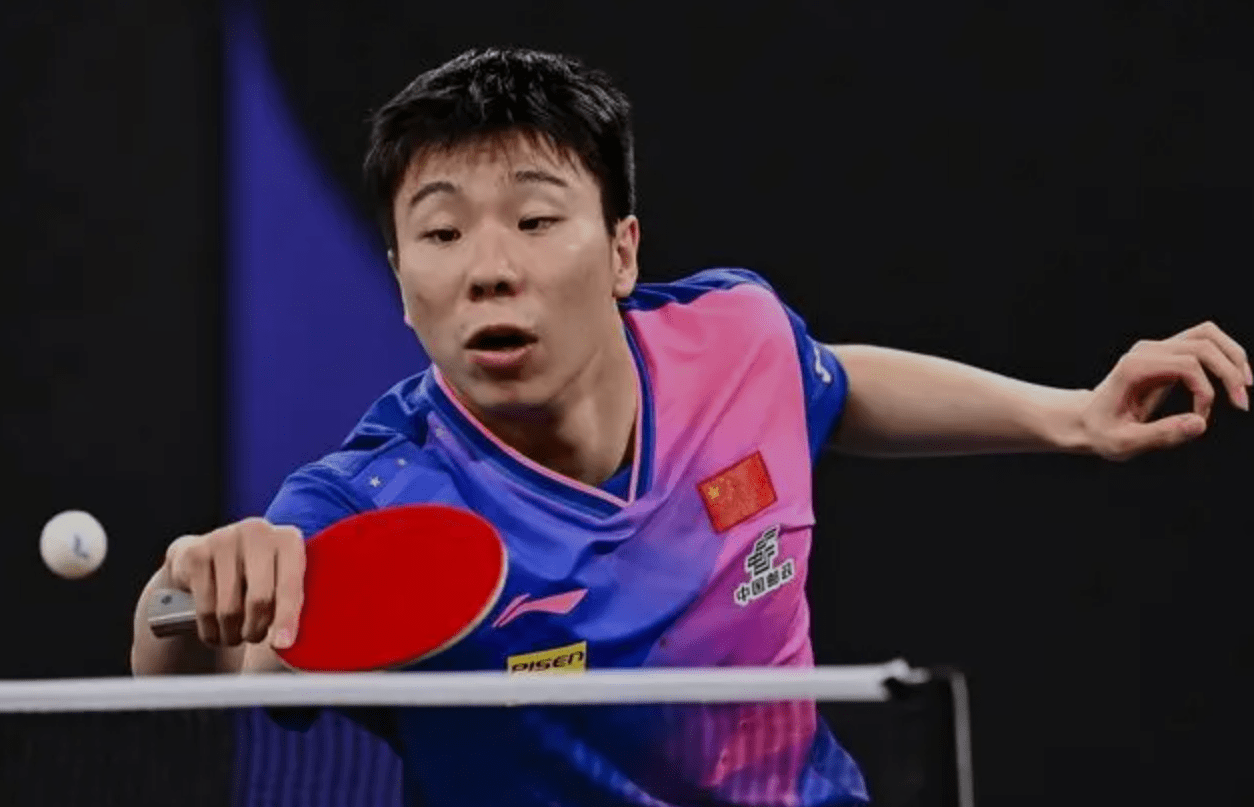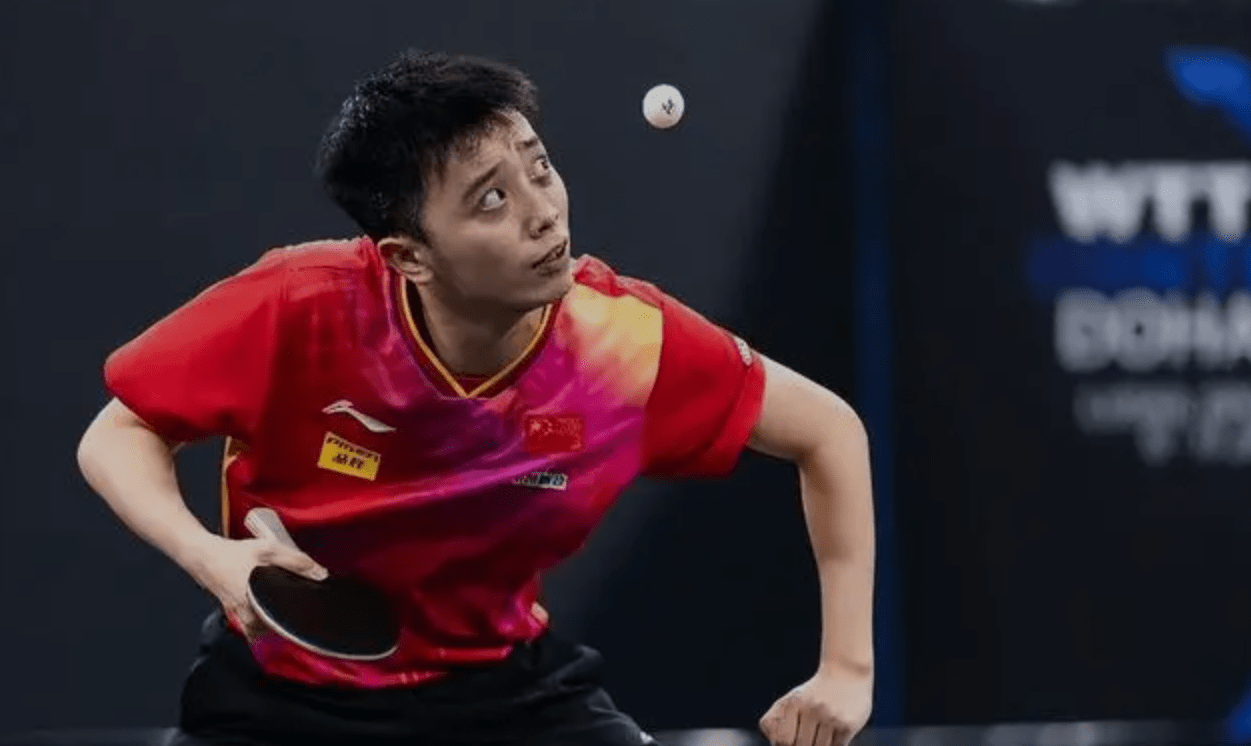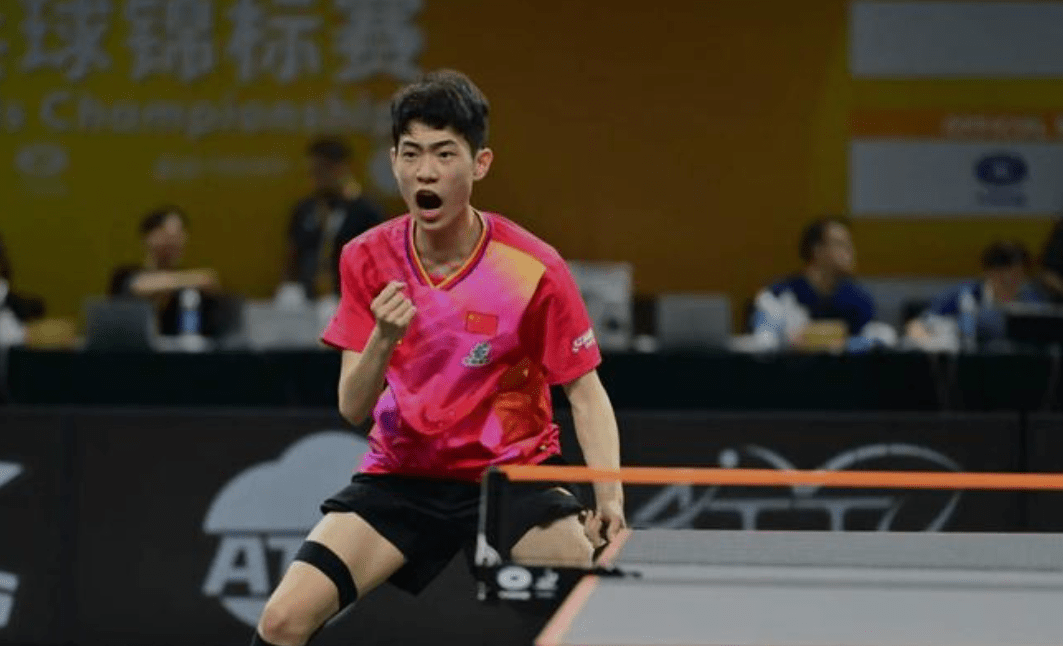China's national table tennis team, often referred to as the "Dream Team," has recently experienced a significant setback at the Doha Star Challenge. Instead of achieving victory, the team faced a reversal of fortune, with their top male singles players failing to secure any titles. This outcome has left many fans disappointed, as they had hoped to see China's dominance on display once again. The results were straightforward and disheartening: not only did the Chinese men's singles team fail to win any championships, but they also did not even make it past the quarterfinals. This raises questions about whether China's dominance in table tennis is waning or if this is simply a temporary setback for the younger players.

In this competition, China's male singles lineup primarily consisted of young players, including Xu Yingbin, Chen Yuanyu, Xiang Peng, and Huang Youzheng, who are considered rising stars. Despite not being considered top-tier players yet, they were not expected to be eliminated in the first round. However, to everyone's surprise, they all failed to advance beyond the quarterfinals.

Taking Xu Yingbin as an example, this young player, who has shown great competitiveness domestically and was widely regarded as a potential future star after his impressive performance at the National Championships, appeared to lack confidence and psychological preparation on the international stage. It seems that while the domestic arena is attractive, when it comes to real competition, he is not yet fully matured. This is directly related to experience.

Xiang Peng, who won the World Youth Championships in 2021 and should have been shining with glory, lost his way in this competition. His hesitation during matches and poor grasp of crucial points were evident. Similarly, Huang Youzheng and Chen Yuanyu did not perform well either, leading some fans to jokingly comment that they seemed slower than Yang Jiajun, a member of the national track and field team. This jest reflects the disappointment and dissatisfaction with the young players' performance.

The impact of the national team's defeat is not limited to the present day; there have been previous challenges as well. Veteran fans may recall the 2003 World Table Tennis Championships, where the Chinese men's team performed poorly in the singles event, with only Wang Liqin reaching the semifinals before ultimately losing to Austria's Werner Schlager. This defeat served as a wake-up call, leading to significant reforms and the subsequent resurgence of the Chinese team. Comparing the loss in Doha to 2003 suggests that this could be another warning sign, indicating that underlying issues cannot be ignored.

Behind the zero championship titles, another undeniable fact is the outstanding performance of Japan's team. In recent years, Japan has been making strides in the world of table tennis, cultivating a group of strong young players such as Tomokazu Harimoto and Yutaro Uchihara, who are fierce competitors. In high-level competitions like these, their players demonstrate remarkable stability, adopting an attitude of "whoever backs down first loses."

Why has Japan been able to rise? The answer is simple: their young players are trained in a scientific system, with more experience and a greater willingness to compete psychologically. For several years, the Japanese Table Tennis Association has focused on the international training of young players, regularly sending them abroad to participate in competitions and accumulate rich front-line experience. Tomokazu Harimoto is a prime example, having started competing in adult tournaments at the age of 14 and seen various "big scenes" without showing any stage fright. In contrast, our young players seem to wilt when facing unfamiliar opponents in international competitions, indicating a clear lack of resilience.

From the peak period around 2000 to the present, China's dominance in table tennis has indeed shown signs of weakening. Taking men's singles as an example, compared to European and Asian countries, China's technical and psychological advantages are no longer as pronounced as they once were. Now, players from other countries are continuously improving, significantly narrowing the gap with China.

Changes in psychology, from joy to anger, can determine victory or defeat. In this competition, Japanese players dared to fight fiercely, treating every point as if their life depended on it, while our players seemed indecisive and restrained. A positive mindset and boldness are what give the most advantage in competitive arenas. However, although everyone knows this principle, few actually put it into practice.
Even more disheartening is the latest ranking by the International Table Tennis Federation, which reflects changes in the global table tennis landscape. In men's singles, many Japanese and European players are ranked high, while our ranking is gradually falling behind. This change may seem quiet, but it is increasingly dangerous. While it is good to have a large tree to shelter under, if one only relies on old achievements, even a lion can be kicked by a rabbit.
Although this failure is disheartening, history has repeatedly shown that the Chinese table tennis team is not without mistakes and is not lacking in the ability to recover from setbacks. Reflecting on the loss at the 2003 World Table Tennis Championships, it was precisely because of that pain that the national team made significant adjustments and entered a "peak period" for the next decade. Therefore, the current "failure" of young players, though painful, may not necessarily be a bad thing—it could be an opportunity for the entire team to reflect.
How can we learn lessons more quickly? First, we need to invest more effort in the training strategies for young players, especially in terms of international competition experience. We can arrange for them to face top opponents more purposefully, starting with learning to adapt to pressure. Second, psychological development must keep pace; otherwise, even the strongest technical foundation can be hindered by "psychological weightlessness."
Additionally, enhancing practical simulation is also a key aspect. If possible, we can simulate the tense environment of a high-pressure match, recreating the excitement and atmosphere of crucial points, as on the court, a single moment can decide victory or defeat.
It is worth noting that the emotions of fans are also crucial. After the loss, many fans launched harsh criticism, blaming the young players for being "uncompetitive" and "unable to hold onto their position." However, the truth is that the players on the court already bear enough pressure; they need more rational analysis and support from the outside world, rather than sarcastic remarks. Just as plants need rain to grow, a mature fan base should know how to help players better unleash their full potential.
The loss in Doha is certainly not the final outcome. For the Chinese table tennis team, their responsibility is not just to win a game but to regain their confidence. If they can find new ideas from this crushing defeat, they will still be the champions on future courts.